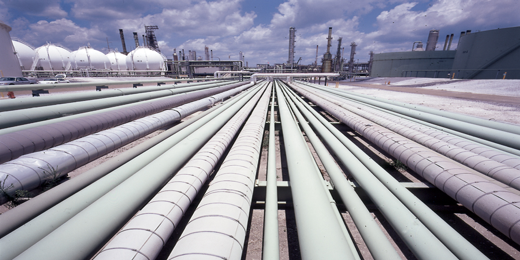Industrial boilers, furnaces, and heat exchangers are integral components of many manufacturing processes, but they also significantly contribute to greenhouse gas emissions and climate change. Reducing their environmental impact is crucial for mitigating climate change and promoting sustainability. Here are several strategies to achieve this goal.
1. Improving Energy Efficiency
Improving the energy efficiency of industrial boilers, furnaces, and heat exchangers can significantly reduce their environmental impact. Here are some key methods:
- Regular Maintenance: Ensuring regular maintenance and cleaning can prevent the buildup of deposits and improve heat transfer efficiency, leading to lower fuel consumption.
- Upgrading Equipment: Replacing outdated equipment with modern, energy-efficient models can result in substantial energy savings. For instance, condensing boilers are more efficient than traditional boilers as they capture and reuse latent heat from exhaust gases.
- Insulation: Proper insulation of pipes and equipment minimizes heat loss, improving overall efficiency.
- Variable Speed Drives (VSDs): Installing VSDs on pumps and fans allows for better control of speed and energy use, reducing unnecessary energy consumption.
2. Implementing Advanced Control Systems
Advanced control systems can optimize the operation of boilers, furnaces, and heat exchangers, enhancing efficiency and reducing emissions.
- Automated Controls: Using automated control systems to monitor and adjust the operation of equipment can ensure optimal performance. These systems can adjust fuel and air supply in real-time to maintain efficient combustion.
- Predictive Maintenance: Utilizing predictive maintenance technologies, such as sensors and data analytics, can help detect potential issues before they lead to inefficiencies or failures. This proactive approach reduces downtime and maintains optimal performance.
3. Utilizing Renewable Energy Sources
Switching to renewable energy sources can drastically reduce the carbon footprint of industrial heating processes.
- Biomass Boilers: Biomass boilers use organic materials such as wood chips and agricultural waste as fuel, offering a renewable and carbon-neutral alternative to fossil fuels.
- Solar Thermal Systems: Integrating solar thermal systems with existing boilers and heat exchangers can provide supplementary heat, reducing the reliance on fossil fuels.
4. Adopting Waste Heat Recovery Systems
Waste heat recovery systems capture and reuse heat that would otherwise be lost, improving overall energy efficiency.
- Heat Exchangers: Installing heat exchangers to recover heat from flue gases or process exhausts can preheat incoming air or water, reducing the energy required for heating.
- Combined Heat and Power (CHP) Systems: CHP systems generate electricity and capture the resulting heat for use in industrial processes, significantly enhancing overall energy efficiency.
5. Reducing Emissions through Cleaner Fuels and Technologies
Transitioning to cleaner fuels and adopting advanced combustion technologies can reduce harmful emissions from industrial boilers and furnaces.
- Natural Gas: Switching from coal or oil to natural gas can reduce CO2 emissions and other pollutants such as sulfur dioxide and particulate matter.
- Low NOx Burners: Installing low NOx burners can minimize the formation of nitrogen oxides, which contribute to smog and acid rain.
- Oxy-fuel Combustion: Oxy-fuel combustion technology uses pure oxygen instead of air for combustion, resulting in higher efficiency and lower emissions of CO2 and other pollutants.
6. Implementing Carbon Capture and Storage (CCS)
Carbon capture and storage (CCS) technologies can capture CO2 emissions from industrial processes and store them underground, preventing their release into the atmosphere.
- Post-Combustion Capture: This method captures CO2 from flue gases after combustion and can be retrofitted to existing equipment.
- Pre-Combustion Capture: In this approach, CO2 is removed from fuels before combustion, resulting in cleaner combustion processes.
- Storage Solutions: Captured CO2 can be stored in geological formations or used in industrial applications such as enhanced oil recovery.
7. Enhancing Process Integration
Integrating various industrial processes to utilize waste heat and optimize energy flows can lead to significant efficiency gains and emission reductions.
- Pinch Analysis: Pinch analysis is a method for designing integrated energy systems that minimize energy consumption by identifying and exploiting opportunities for heat recovery and process integration.
- Process Optimization: Continuously optimizing industrial processes to reduce energy use and emissions can result in substantial long-term benefits.
Reducing the environmental impact of industrial boilers, furnaces, and heat exchangers is critical for mitigating climate change. By improving energy efficiency, implementing advanced control systems, utilizing renewable energy sources, adopting waste heat recovery systems, switching to cleaner fuels and technologies, implementing carbon capture and storage, and enhancing process integration, industries can significantly reduce their carbon footprint. These strategies not only contribute to a more sustainable future but also offer economic benefits through reduced energy costs and improved operational efficiency.

